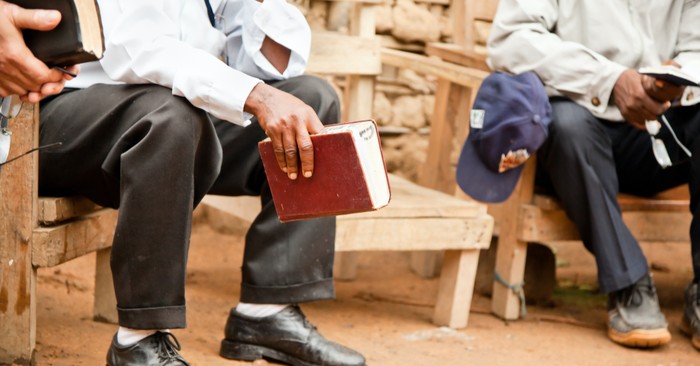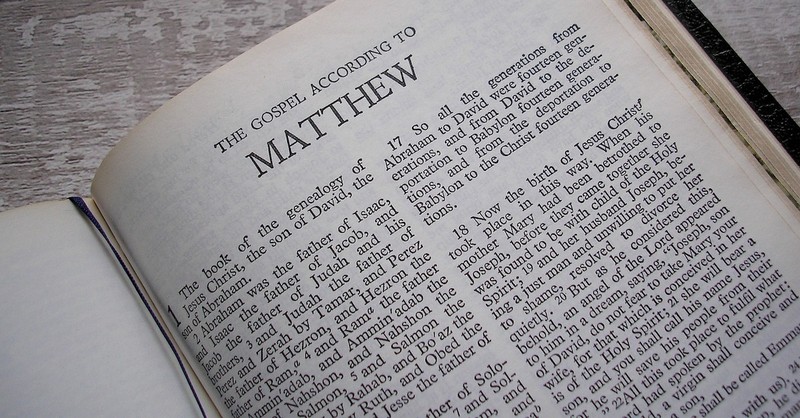
I stumbled upon a statistic the other day that was a little shocking to me, but let me set it up for you so you can share in my shock. Millennials are known for activism. You can see this reflected in the shift that has taken place with many Fortune 500 companies. Even as early as the 1980’s it would have seemed strange to ask a company about their larger purpose in the world. It was simple. They were there to make money. But today a company cannot say they are only there to make money, they need to have a great purpose tied to some level of activism in changing the world.
To a millennial, an organization needs to know it’s greater purpose and be living out of that purpose. Ready for the shocking statistic? Only 10% of millennials recognize the Great Commission. But it’s not only millennials. A recent study found that over half of churchgoers did not know the Great Commission.
Perhaps you are one of the 51% of people, and you’ve heard that phrase but aren’t quite sure what it means, or why a Christian should care about this Great Commission. If that’s you, then hopefully by the end you not only know about the Great Commission, but you’re encouraged to live out this calling upon your life.
Photo credit: ©Getty Images/Himarkley

So What Is the Great Commission?
I suppose before understanding the great commission it’d be helpful to know what any commission means. A commission is an instruction or a command given to a person or a group of people, or it can refer to the group itself tasked with accomplishing a certain mission. Picture a football team. The coach draws up a play and tells each person to go to a specific place on the field and complete a certain action. Each offensive lineman is supposed to block a certain way and create a specific hole for the running back to run through. Each person has a job to do. They have been commissioned for that play to complete a specific task.
When we talk about the Great Commission of the Bible, we are talking about a specific instruction given by Jesus to his disciples. A commission is a command. What specifically is this command? It is, according to Matthew 28:18-20, a command to “go and make disciples.”
The phrase “Great Commission” does not appear in the actual text of Scripture. In fact, even though Christians were using this term for centuries, it was likely coined in the 17th century by Baron Justinian Von Welz, who founded the Jesus-Loving Society. It was popularized by Hudson Taylor, who is considered one of the fathers of the modern missionary movement. He put a great emphasis on the go aspect of the Great Commission.
So, where in the Bible do we get this idea that we are commanded to go and make disciples?
Photo credit: ©SparrowStock

Where Do We Find the Great Commission in Scripture?
Matthew 28:18-20 is the typical verse for expounding upon the Great Commission. It reads:
“Then Jesus came to them and said, ‘All authority in heaven and on earth has been given to me. Therefore go and make disciples of all nations, baptizing them in the name of the Father and of the Son and of the Holy Spirit, and teaching them to obey everything I have commanded you. And surely I am with you always, to the very end of the age.’”
Each of the gospel accounts, though, has its own type of Great Commission or last words from Jesus. Mark 16:15 reads thus:
“He said to them, ‘Go into all the world and preach the good news to all creation. Whoever believes and is baptized will be saved, but whoever does not believe will be condemned.’”
In Luke 24:44-49 on the Road to Emmaus, Jesus explained the Scriptures to a group of disciples and then commissioned them:
“He said to them, ‘This is what I told you while I was still with you: Everything must be fulfilled that is written about me in the Law of Moses, the Prophets and the Psalms.’ Then he opened their minds so they could understand the Scriptures. He told them, ‘This is what is written: The Christ will suffer and rise from the dead on the third day, and repentance and forgiveness of sins will be preached in his name to all nations, beginning at Jerusalem. You are witnesses of these things. I am going to send you what my Father has promised; but stay in the city until you have been clothed with power from on high.’"
Acts 1:8, also written by Luke, serves as not only the outline for the book of Acts, but also as another way of explaining the Great Commission:
“[Jesus said,] ‘But you will receive power when the Holy Spirit comes on you; and you will be my witnesses in Jerusalem, and in all Judea and Samaria, and to the ends of the earth.’”
As typical of the Gospel of John, the Great Commission sounds a bit different here than by the other gospel writers. John focuses upon the reception of the Holy Spirit, but there is still a sending quality to Jesus’ words to His disciples:
“On the evening of that first day of the week, when the disciples were together, with the doors locked for fear of the Jews, Jesus came and stood among them and said, ‘Peace be with you!’ After he said this, he showed them his hands and side. The disciples were overjoyed when they saw the Lord. Again Jesus said, ‘Peace be with you! As the Father has sent me, I am sending you.’ And with that he breathed on them and said, ‘Receive the Holy Spirit. If you forgive anyone his sins, they are forgiven; if you do not forgive them, they are not forgiven.’"
Though each of these commissions sounds a bit different, they each have a central concern. And that central concern is the heart of the Great Commission.
Photo credit: Pixabay/ScottishPerson

What Is the Central Concern of the Great Commission?
Given all those different verses, what exactly are we commissioned to do? If you look at Matthew 28 in the original Greek, you’ll notice there is only one imperative, the other verbs are participles. What does that mean? It means something like this, “As you go, make disciples, and you do this by baptizing them and teaching them.”
Baptizing is the initiatory rite which brings a person into the kingdom. (That’s not saying that baptism is necessarily salvific — that’s an argument for another post — but saying that baptism is the profession of faith and initiation into the discipleship process). Teaching is the continual training that takes place throughout our lives as we increasingly learn and obey everything which Jesus commanded. “As you go throughout your life, make other Jesus followers,” that’s the gist of the command.
Let’s use the other gospel accounts to fill out our understanding of the task that Jesus has given to us. In the Gospel of Mark, we are commanded to “proclaim the gospel to the whole creation.” That is the imperative in that sentence. Proclaiming the good news for the gospel of Mark would have been proclaiming that Jesus is the Son of God.
In Luke/Acts the emphasis is upon “being witnesses.” One could, perhaps, argue that the commission here was given explicitly to those who were eyewitnesses to Jesus. But the pattern of the New Testament is that these witnesses would make other witnesses (1 Peter 1:8) who, even though not seeing with the physical eyes, still could say that Christ was crucified before their eyes (Galatians 3:1). Once again, the commission here is that the Spirit will enable disciples to proclaim Jesus to the ends of the earth.
In John, the Spirit is given, and the disciples are sent just as Jesus was sent by the Father. What does that mean? It means that the disciples were sent to spill their lives out for others, to proclaim good news to the vulnerable, to testify to the goodness and greatness of God, and to testify that Jesus was the great I Am. In other words — they too were sent to proclaim the good news.
What, then, is the central concern of the Great Commission? It is to proclaim, as we go and wherever we go, with our life and lips the person and work of Jesus Christ. The Great Commission is really part of God’s great purpose of revealing Himself to humanity.
Photo credit: ©Getty Images/Rawpixel

How Can We Live Out the Great Commission Today?
We live out the Great Commission when we are making disciples. Period. That can include going on a foreign mission trip and proclaiming Jesus to those who have never heard the name of Jesus, and then working to establish them into a local body of believers. It can also mean loving your neighbor. It can mean teaching a Bible study to a group of high-school students or meeting with a group of senior adults at a Denny’s on Saturday morning. Anything you are doing to proclaim Christ and to live out the gospel of Christ in the midst of another person is part of living out the Great Commission.
That is why I think it would be very helpful for us to translate these verses something like, “As you go…” rather than to say “Go” as if that is another imperative in the text. As we are going, we are to be making disciples. You will likely “go” somewhere today. Are you going in the name of Jesus? Are you proclaiming Jesus with your life and lips? If so, then you are following the Great Commission.
Step One
There is a guy in our church who somewhat jokingly tells me every Sunday morning before I preach, “Say something about Jesus.” It’s kind of stuck a little as we encourage people throughout our week to have gospel conversations — or to “say something about Jesus.” But that’s really only the starting point of the Great Commission.
As we see from Mark, Luke, Acts, and John, proclamation of Jesus is a central component of this call. But we really aren’t fulfilling the Great Commission unless we are involved in making disciples — and these disciples will be involved in making other disciples.
Photo credit: ©Getty Images
Originally published Friday, 16 June 2023.









